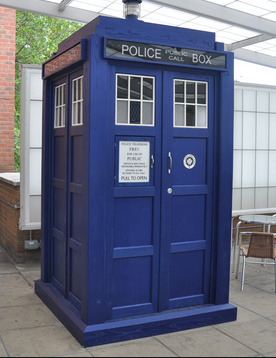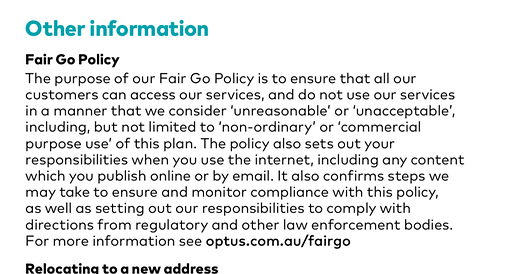On your first point, the communications links for wireless base stations to network hubs has been fibre or microwave transmitters for decades.
On your second point, 5G has various frequency modes from low, to medium, to high. Low has a range similar to 4G but higher bandwith, up to 250mbps. Once you get to high, then the speed is in the gigabits per second, but the range much shorter. Hence more base stations required per area. So even low 5G will blow any NBN service that uses twisted pair copper as part of the link (FTTN, FTTC) out of the water, and will provide access for portable devices.
That is correct, but as @postulative indicated, the density of fibre network needs to increase as the density of 5G transmitters needs to be higher due to distance and penetration issues with the technology.
Notwithstanding this, the fibre connection for a 5G will be significantly less than that for each house connected by NBN fibre and the costs of installation will be far cheaper and borne by the telcos (and not the taxpayer).
It seemed that you were doubting that. All good.
On the second matter do you think the coverage of 5G in remote and regional areas will be less, the same or better?
I am a city dweller, so have not experienced the frustrations of communications in remoter places. I guess it comes down to customer demand; if enough buyers are out there wanting high speed fibre to their homes and businesses, then NBN will provide it. Likewise, if enough customers want high speed wireless connectivity, then telcos will put in new base stations or upgrade existing ones to meet demand. I think that gigabit speed wireless (high 5G) will be not available in many places for some time due to range and physical blocking of the signal issues. Just my attempt to foresee the future.
Is it useful to make a comparison between city urban and rural regional Australia?
There is a substantial difference between wanting a service and needing a service.
Some might suggest that those in the cities do not need mobile phones or high speed internet. Both should only ever have been delivered to regional and remote Australians.
For everyone in the cities there is a phone box on every second corner and no real need to shop on line. There’s a shopping centre in every suburb.
Rumblings?
Most living in the cities of Oz will scream that they NEED their mobiles with high speed data and their high speed fibre NBN. It’s unlikely a simple want.
Are the NEEDS of those living in the rest of Australia any less? It’s far more than a simple desire for whimsical satisfaction, where ever we live?
There used to be a thing called “universal service obligation” that applied to Telstra before and after they were privatised. Wonder whatever happened to that?
And these wonderfull phone boxes on every corner in the cities, wonder where they have all gone?
The current incarnation is
Among other places such as tips, you can get them restored to grace your home.
Thanks, but I’d prefer a Tardis (British phone box, for those who came in late).
actually a British police call box ![]()

Another article about 5G competition to fixed wire NBN …
Interesting note that Telstra plans to have rolled out 5G to cover approx 75% of Australia’s population by mid 2021, (IE 53 cities and major towns).
Optus are also noted to be offering
Fixed-5G services, by contrast, are being priced against much-slower NBN services – with Optus, for one, offering unlimited data at average peak-hour speeds of 214Mbps for $90 per month.
Great for those 75% who will have coverage. Not good for the other 25% of consumers who likely only have access to the NBN via satellite, fixed wireless or long runs of copper on FTTN.
Dare we ask how much this is all costing?
Users are going to get their internet from one system (NBN) or the other (5G), and not both. One pot to share.
P.S.
Rumour has it that the ABC will be producing a new program “Return to the City” as rural and regional Australians discover they are being left right out of everything. ![]()
I doubt that Telstra will stop there, but will keep on extending their coverage as they have done with the previous mobile networks.
It will likely be smoke and mirrors.
Telstra can deliver high speed short range 5G as can Optus or Vodafone. They are only likely to do so where they have sufficient density of users within range. They’d need at least 5 of their millimetre cells installed to cover our road and 20+ neighbours. Of course in doing so they’d need to run fibre to each cell to deliver the bandwidth required. If they were to do that they might as well install fibre all the way to the curb or premise.
It’s a guess that over time just as 4G is replacing 3G in the bush, 5G will replace 4G. Except it will be a low speed 5G service not that much different to 4G or even 3G you get in rural areas today? Hence Telstra might one day boast delivering 5G to 99% of Australian’s (but not Australia). But not all 5G will be equal!
Will it be truly unlimited or subject to ‘reasonable use’ terms?
I’m not promoting the product by Optus or Telstra’s alternative as being suitable or recommended. Details for Optus:
Perhaps someone needs to take it for a test run?
Noted the 50Mbps minimum service speed guarantee and 214Mbps average download speed do have an explanation.
P.S.
I can get 100Mps from both Telstra and Optus using 4G if I sit on the roof. Subject to congestion of which there has been very little. It’s just too expensive for large volumes.
We also need to distinguish between 5G services on different bands. The higher the band frequency and greater the channels (width and number) the greater the potential speed of service. The higher the band frequency the shorter the effective distance for a reliable connection. (Unless you have a replica of ‘The Dish’ built on your roof.)
A interesting perspective on 5G and NBN competition…
https://www.macrobusiness.com.au/2020/11/nbn-should-fear-5g/
Looks like in NZ 5G is a direct competitor to the NZ (far superior) NBN…and is drawing customers away from fixed or wired services. It is likely that a similar situation will occur in Australia and possibly the government may have put all its eggs in one basket hoping it will pay dividends.
With Australian telcos offering 5G home packages similar to the NBN, it may make interesting times in the future…and challenge the asset value of the NBN.
(To be read with a sense of humour.)
6G will be faster than 5G! (Not that there is a 6G standard yet.)
6G will require Phone Software 10.5, 10.0 will not work well. 10.5 will be more efficient, more stable, and compatible with 6G and maybe 7G. Phone Software 10.6 will be eagerly awaited when 10.5 is released.
Humour, definitely.
A further thought on the same theme, although it might depend on your outlook on life?
I’ve heard that there are long lost tribes living outside of Australia’s cities who have never had contact with 5G or even 4G.
It’s rumoured they communicate in a language long lost to technology. The risks of their tribes collapsing if ever exposed to the modern world are also recognised and concerning.
A proposal to preserve and save their culture remains the goal of our leadership. Like National Parks and Wildlife services the NBN is now dedicated to preserving the future of these long lost tribes.
Meanwhile, back in the big city. How many might die waiting for the arrival of the soon to be promised 6G. Apparently a cure for all modern ailments? Survival skills for the future. ![]()
Another worry about 5G because of the spectrum. There is so much competition for spectrum there is seemingly not enough for everyone for everything. Weather satellites, radars, and now radar altimeters seem to be getting pushed to the side as governments prioritise selling off spectrum to the highest bidder, current users be sacrificed, so people can download their movies more quickly. (No apologies for the selection of reasoning.)
An article in Ausdroid about 4G being suitable as a NBN fixed line alternative…and how mobile data deflation is a threat to the NBN from a cost perspective…
